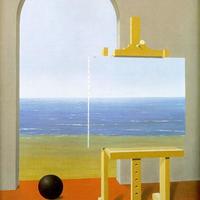Chris Scambler
New York University, Philosophy, Graduate Student
- I'm a philosophy graduate student at NYU. My website has more details on my research: chrisjscambler.comedit
In this paper, I present a modal set theory that reconciles mathematics after Cantor with the idea that there is only one size of infinity.
Research Interests:
In previous work, I (albeit implicitly) generalized the results of Barrio, Pailos and Szmuc on meta-inferential validity beyond all the finite stages of meta-inferences to stage omega. This short note shows that there is no reason to stop... more
In previous work, I (albeit implicitly) generalized the results of Barrio, Pailos and Szmuc on meta-inferential validity beyond all the finite stages of meta-inferences to stage omega. This short note shows that there is no reason to stop there, since the results naturally generalize up to all transfinite orders once these have been suitably defined.
Research Interests:
In their recent article "A Hierarchy of Classical and Paraconsistent Logics", Eduardo Barrio, Federico Pailos and Damien Szmuc (BPS hereafter) present novel and striking results about meta-inferential validity in various three valued... more
In their recent article "A Hierarchy of Classical and Paraconsistent Logics", Eduardo Barrio, Federico Pailos and Damien Szmuc (BPS hereafter) present novel and striking results about meta-inferential validity in various three valued logics. In the process, they have thrown open the door to a hitherto unrecognized domain of non-classical logics with surprising intrinsic properties, as well as subtle and interesting relations to various familiar logics, including classical logic. One such result is that, for each n, there is a logic which agrees with classical logic on tautologies, meta-inferences, meta-meta-inferences, meta-meta-...(n-3 times)-meta-inferences, but that disagrees with classical logic on "n + 1" meta-inferences. They suggest that this shows that in order to characterize classical logic, one must specify the valid inferences of all orders. In this article, I invoke some simple symmetric generalizations of BPS results to show that the problem is worse than they suggest, since in fact there are logics that agree with classical logic on inferential validity to all orders but still intuitively differ from it. I then discuss the relevance of these results for truth theory and the classification problem.
Research Interests:
In recent work Philip Welch has proven the existence of "ineffable liars" for Hartry Field's theory of truth. These are offered as liar-like sentences that escape classification in Field's transfinite hierarchy of determinateness... more
In recent work Philip Welch has proven the existence of "ineffable liars" for Hartry Field's theory of truth. These are offered as liar-like sentences that escape classification in Field's transfinite hierarchy of determinateness operators. In this article I present a slightly more general characterization of the ineffability phenomenon, and discuss its philosophical significance. I show the ineffable sentences to be less `liar-like' than Welch's presentation seems to suggest. I also point to some open technical problems whose resolution would greatly clarify the philosophical issues raised by the ineffability phenomenon.
Research Interests:
In recent work Bruno Whittle has presented a new challenge to the Can-torian idea that there are different infinite cardinalities. Most challenges of this kind have tended to focus on the status of the axioms of standard set theory;... more
In recent work Bruno Whittle has presented a new challenge to the Can-torian idea that there are different infinite cardinalities. Most challenges of this kind have tended to focus on the status of the axioms of standard set theory; Whittle's is different in that he focuses on the connection between standard set theory and intuitive concepts related to cardinality. Specifically , Whittle argues we are not in a position to know a principle I call the Quantificational Hume Principle (QHP), which connects the application of intuitive, quantificational cardinality concepts (including 'at least as many') to claims involving the existence of functions. This paper responds to Whit-tle's skeptical arguments by providing an argument justifying the QHP.
Research Interests:
The questions Is there one and only one universe of sets (up to isomorphism)? and Does every set-theoretic proposition have a determinate truth-value? are often taken to be intimately related; there is, for example, a... more
The questions
Is there one and only one universe of sets (up to isomorphism)?
and
Does every set-theoretic proposition have a determinate truth-value?
are often taken to be intimately related; there is, for example, a widespread tendency to assume that answering the former affirmatively commits one to the same with respect the latter. In this paper I suggest that this is wrong. I present a view on which there is a unique but indeterminate universe of sets; I argue that Solomon Feferman's "semi-constructive" set theory provides a formal basis from which this position can be developed.
Is there one and only one universe of sets (up to isomorphism)?
and
Does every set-theoretic proposition have a determinate truth-value?
are often taken to be intimately related; there is, for example, a widespread tendency to assume that answering the former affirmatively commits one to the same with respect the latter. In this paper I suggest that this is wrong. I present a view on which there is a unique but indeterminate universe of sets; I argue that Solomon Feferman's "semi-constructive" set theory provides a formal basis from which this position can be developed.
Research Interests:
This article surveys the terrain on revenge paradoxes as the arise in terms of classical and non-classical solutions to the liar.
Research Interests:
This is my PhD dissertation, in which I explore the conceptual foundations of the post-Cantorian consensus in the idea of there being different sizes of infinity.
